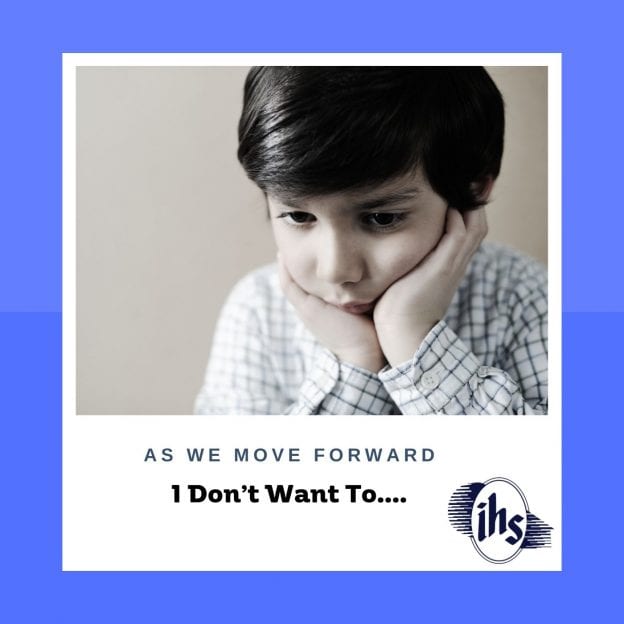
One of the first things a child learns to say is no. The non-verbal crying when we are unhappy leads to saying no when someone tells us to something we don’t want to do. Developmentally, this is an important part of finding our identity and developing our unique personality. To be perfectly fair, we learn to say no by first hearing others say it to us.
Saying ‘I don’t want to’ is a part of the process of beginning to make choices. I like most food. I honestly don’t remember saying I didn’t want to eat any particular food. Later in my life I discovered Lima beans. We never had them when I was growing up. I found out that was because my father did not care for them. The fact that he didn’t want to eat lima beans did not make me dislike them. In fact, it made me like them more when I discovered them as an adult.
One of my most important instances of saying ‘I don’t want to’ has to do with the use of alcohol and tobacco. Both were seen as rites of passage and symbols of adulthood when I was growing up. While I can’t exactly remember when I first said ‘I don’t want to’ with these two things, I have memories of times in my adult life when especially my saying ‘I don’t want to’ regarding alcohol was challenged.
I can remember several meals with friends where there was pressure to have just one glass of wine. I remember being at the fiftieth anniversary party for a couple in the church. They were offended I would not toast them with alcohol. I offered and ended up toasting with ginger ale, but I knew they did not understand. Of course there have been many times in life when I said or acted out ‘I don’t want to’ as a way of deciding on one thing over another.
When I finished my student teaching, both my supervising teacher and the college supervisor tried to talk me into a career in teaching rather than follow my plan to attend seminary. The affirmation and support from them felt good. I will admit to a moment of indecision. I applied to colleges, and got accepted by both. One of these colleges had strong memories. I had participated in several regional science fairs at that school. They actively recruited me. It was not easy saying ‘I don’t want to’ go to that college.
Many times, saying “I don’t want to” involves things that are beyond our control. Our current crisis makes us do many things that go against what we would prefer doing. As I watch people acting outside what sometimes seem like some very restrictive requirements, I can “hear” their ‘I don’t want to’ as clearly as if they were speaking the words.

As we move forward, we can start examining the times our words, and especially our actions seem to say ‘I don’t want to’. When this behavior and these words seem to be inconsistent with what we know or have been told is the right thing to do, we might take a moment to ask ourselves why we are doing or saying that.
It’s OK to say ‘I don’t want to’. What really matters is what we ultimately do in the situation, especially in times of crisis. We can also be understanding of the ‘I don’t want to’ words and behaviors of others.

